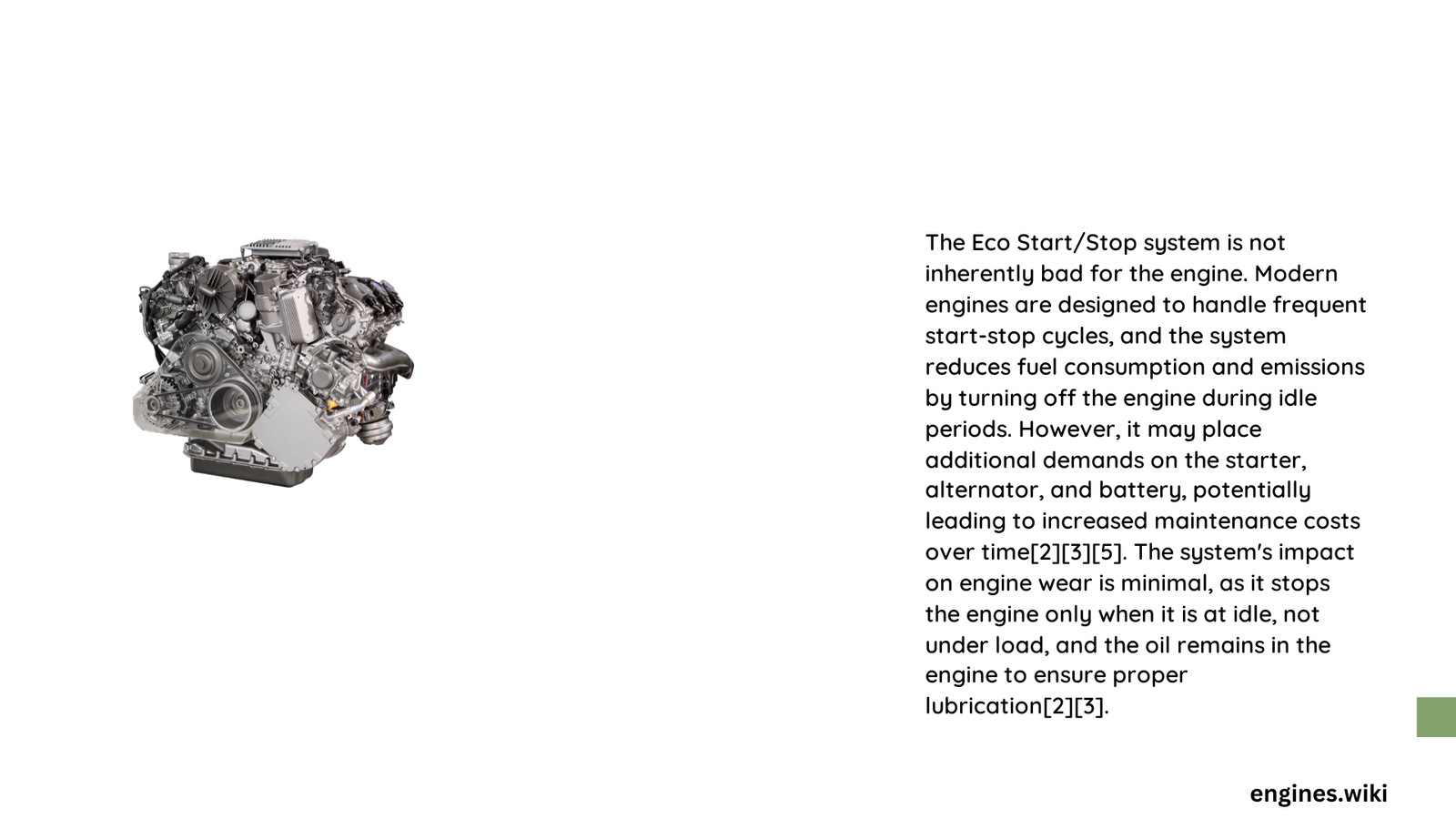Modern vehicles equipped with eco start-stop technology have sparked intense debate among car enthusiasts and mechanics about potential engine damage. Contrary to popular misconceptions, advanced engineering and sophisticated design have transformed these systems into reliable fuel-saving mechanisms that minimize wear while maximizing vehicle efficiency. This comprehensive analysis will explore the technical nuances and address common concerns surrounding eco start-stop technology’s impact on engine health.
What Makes Drivers Worry About Eco Start-Stop?
Eco start-stop systems automatically shut down and restart the engine at traffic stops to reduce fuel consumption and emissions. Many drivers express legitimate concerns about potential increased mechanical stress and long-term engine reliability.
Key Concerns Explored
| Concern | Potential Impact | Mitigation Strategy |
|---|---|---|
| Engine Wear | Increased start cycles | Advanced bearing technologies |
| Battery Strain | Frequent electrical load | Enhanced battery management systems |
| Starter Motor Durability | More frequent engagement | Reinforced mechanical components |
How Do Modern Start-Stop Systems Protect Engine Components?

Technological Innovations Preventing Wear
- Advanced Lubrication Systems
- Specialized low-friction oils
- Rapid lubrication protocols during restart
-
Reduced mechanical friction during multiple start cycles
-
Enhanced Starter Motor Design
- Reinforced electrical components
- High-durability brushes
-
Precision-engineered mechanical interfaces
-
Intelligent System Management
- Battery voltage monitoring
- Temperature-adaptive restart protocols
- Predictive maintenance algorithms
What Research Says About Engine Longevity
Comprehensive studies from automotive engineering research centers reveal compelling insights:
- Modern start-stop systems can handle up to 500,000 start-stop cycles compared to traditional systems’ 50,000 cycles
- Fuel efficiency improvements range between 5-8% in urban driving conditions
- No statistically significant reduction in engine lifespan when properly maintained
When Should You Be Cautious?
Potential Limitation Scenarios
- Extreme temperature environments
- Vehicles with older battery technologies
- Inconsistent maintenance practices
- High-mileage vehicles with pre-existing mechanical issues
Expert Recommendations for Optimal Performance
- Regular battery health checks
- Use manufacturer-recommended maintenance schedules
- Choose high-quality synthetic lubricants
- Monitor electrical system performance
- Address warning indicators promptly
Conclusion: Debunking the Myth
Eco start-stop technology is not inherently bad for engines. With continuous technological advancements, these systems represent a sophisticated approach to improving vehicle efficiency while maintaining robust mechanical integrity.
Final Takeaway
Modern automotive engineering has transformed start-stop systems from potential liability to a reliable fuel-saving technology.
